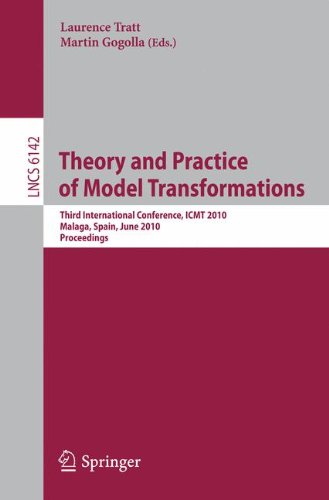

Most ebook files are in PDF format, so you can easily read them using various software such as Foxit Reader or directly on the Google Chrome browser.
Some ebook files are released by publishers in other formats such as .awz, .mobi, .epub, .fb2, etc. You may need to install specific software to read these formats on mobile/PC, such as Calibre.
Please read the tutorial at this link: https://ebookbell.com/faq
We offer FREE conversion to the popular formats you request; however, this may take some time. Therefore, right after payment, please email us, and we will try to provide the service as quickly as possible.
For some exceptional file formats or broken links (if any), please refrain from opening any disputes. Instead, email us first, and we will try to assist within a maximum of 6 hours.
EbookBell Team

0.0
0 reviewsModel transformations are the glue that tie modelling activities together. If you’ve used modelling in anger then, whether you know it or not, you’ve used model transformations. They come in all shapes and sizes from moving models between di?erent tools to generating implementations. Model transformations have humble beginnings—at one point, not long ago, it was said by many ‘in the know’ that the way forward in model transformations was to use XSLT. That this idea now raises a wry smile shows how far the model transformation community has come in a short time. Where once model transformations were hacked together in a variety of unsuitable languages, we now have a number of powerful, dedicated languages and theories at our disposal. Since 2008, the ICMT conference series has played a huge part in advancing the subject, and this third edition was no di?erent. The theories and languages presented at ICMT have allowed principled model transformations to play an ever greater part in real systems. Of course there is still much more to do: we need our model transformations, languages, and theories to scale further, allow greater expressivity, be more ?exible, and aid reusability; and we lack empirically backed studies of model transformations in use. Doubtless you can think of other gaps. Yet, though some real-world challenges lie just beyond our reach,eachyearseesonce-dauntingproblemsconquered.Muchofthatprogressis nowdriven byICMT, andthis year’sedition showedhow model transformations are increasingly being used in previously unfamiliar areas.